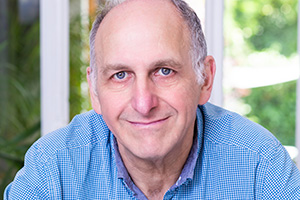Have I Got New For You: What now for topical comedy?
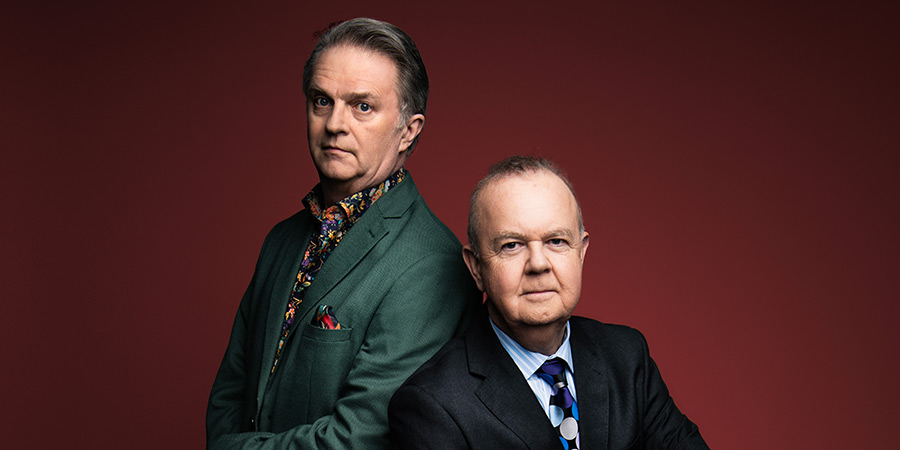
Topical humour has been a staple of British comedy for decades and remains one of the most significant ways in which to forward your writing career.
In the first of a three-part series, Dave Cohen charts the journey of jokes about the news and looks to the past for clues about what the future holds.
I'm officially an extremely old git - this year I've joined Paul Weller, Kate Bush and Lenny Henry down the cyber Post Office to pick up my old age pension.
But in a career of writing and performing jokes about the news that has spanned more than 40 years I only ever had to deal with this question twice:
How do you do topical comedy after a change of government?
In all of that time I've enjoyed, if that's the right word, 28 years of Conservatives and just 13 of Labour.
Yes, enjoyed. Enjoyed is the right word. I think even the most die hard Conservative will find it hard to disagree with the fact that the best topical humour tends to happen when the Tories are in power.
I began writing jokes for Week Ending in 1983 at the height of Margaret Thatcher's supremacy and was part of the Comedy Store Cutting Edge team in the early 1990s when John Major "ran away from the circus to join a firm of accountants" as the great Linda Smith put it.
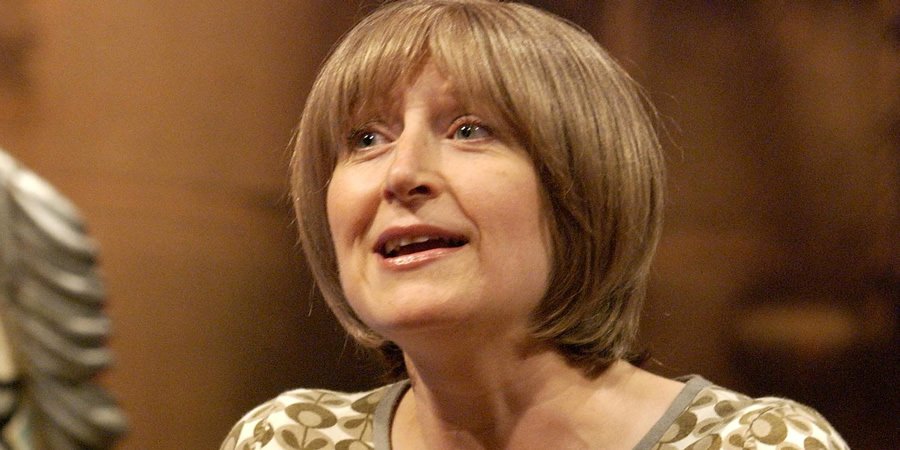
I spent much of the subsequent 30 years writing jokes and songs for Spitting Image, The News Quiz, 15 Minute Musical, Have I Got News For You and a host of others.
While I was always one of those who scoffed at the idea that you can't be funny when the idiots leave and the sensibles take over, you can see how in terms of comedy characteristics Gordon Brown and Tony Blair could never compete with the innately buffoonish Tory clowns who appeared to have stepped out of the pages of PG Wodehouse.
After 14 years of political incompetence and frivolity the boring old grown-ups are back in charge of politics. How much more fun is there to be had with the knowledge that the Prime Minister's dad was a toolmaker? Can't we just go back to the guy whose definition of hardship was being forced to pass his evenings without watching Trollied?
The government may have changed but this route to success as a comedy writer remains.
The quickest way to pick up a BBC writing credit is by sending jokes to one of the topical radio shows. Succession writers Georgia Pritchett and Tony Roche began by writing one liners for Week Ending, as did Breeders and Back creator Simon Blackwell and movie/musical/novelist/everything author John O'Farrell.
Topical comedy first came to prominence in Britain in the 1960s. The Tories had been in power for a decade, make of that what you will.
Back in those days people called it satire - this is an ancient Greek word that means a piece of work, usually in rhyme, exposing the follies and ridicule of authority. Peter Cook was a budding satirist whose early writing and performing owed much to the dramas of Bertold Brecht, and he was one of the first comedians of the 20th Century to openly mock the rich and powerful.
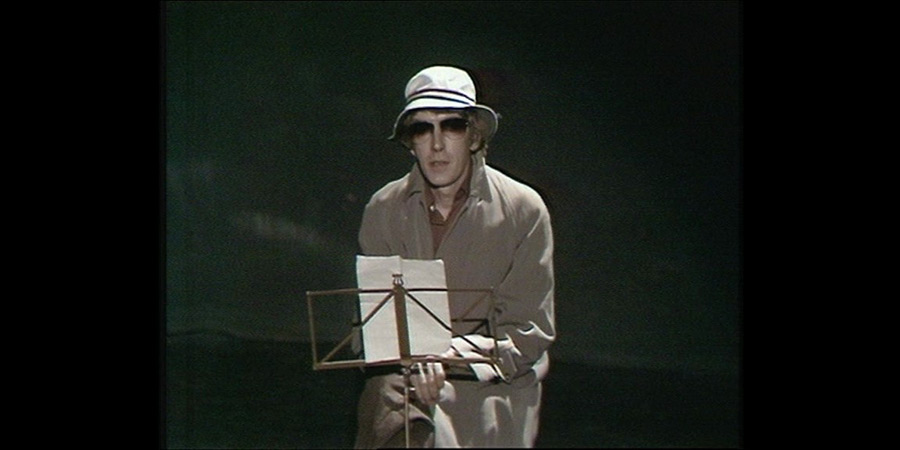
He became one of the founding fathers of the English journal Private Eye, a magazine that mocked those with authority over our daily lives. Private Eye took Cook's brand of satire and applied it to a fortnightly appraisal of the news. Satire with a deadline.
The Oxbridge graduates who ran Private Eye took it to their friends who had gone from University straight to the BBC. That Was The Week That Was is considered the first topical TV show, and I've been hearing BBC producers say "we're looking for a new version of TW3" ever since.
The British class system has always underpinned our comedy, and here was a show that mocked its own - the toffs and aristocrats who ran the country, the Church of England, the BBC and every other institution you could name.
Away from TV in the packed northern clubs topical comedy came in a different form. The working class comedians were observing Britain and it was a country they didn't like. They were upset by the arrival of immigrants from the Commonwealth invited over to bolster our new national medical services by Health Minister Enoch Powell - yes, that Enoch Powell.
There was less topical comedy on a daily basis among the working classes but more observational material. Today's stand-up staple of the battle of the sexes was in full flight in the 1960s and 70s, when all the comics were men and the only women on TV were weather presenters.
The class war over topical comedy played out in real time on BBC Radio. While the young heirs to TW3 were developing their moves at Radio 4's Week Ending that would see them going on to create programmes like The Eleven O'Clock Show and The Thick Of It, a bunch of less overtly political comedy writers were cutting their teeth on The News Huddlines.
Throughout the 1970s and 80s Roy Hudd's Radio 2 show was gently mocked by my miserable band of left-wing intellectuals. Roy's dodgy West Indian accents and June Whitfield's extraordinary arsenal of dolly birds, mothers-in-law and airheaded receptionists caused us to roll our eyes in right-on modern day disbelief, but the show was often sharper than its cerebral competitors. A live audience ensured broader jokes but also served as a reminder that comedy is and always has been about making a roomful of people laugh together.
Writers like David Renwick and Andy Hamilton began here along with Terry Ravenscroft who went on to write many episodes of Terry And June, the sitcom that became a byword - grossly unfairly in my view - for everything that was wrong with British comedy.
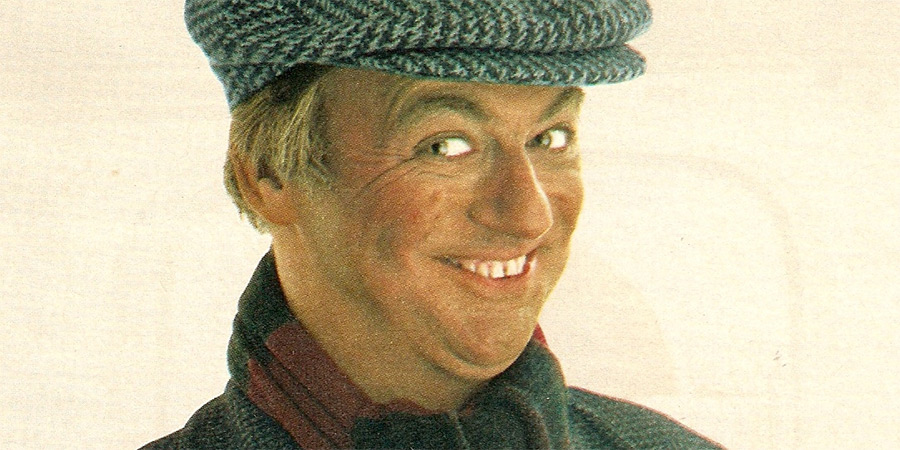
1990 was a year of big change. The introduction of British Satellite Broadcasting had zero impact on the TV watching community but for nine months gave us Britain's first - only, I think - daily TV comedy show, Up Yer News.
When Sky took over the ailing company, this show which regularly had more participants than viewers was swiftly canned. But not before it had trained up a new generation of writers, performers and producers.
Alan Partridge made his TV debut there, as did Chris Morris. It's the first sighting of a character that would morph into Bridget Jones.
That summer The Comedy Store's live Cutting Edge show came into being. Barely three months into our tenure Margaret Thatcher was deposed. I'd like to think our hilarious anti-Fatcha gags were responsible for her demise but I suspect there were other forces at play.
And by the end of the year we'd seen the first episode of Have I Got News For You. 34 years and 599 episodes later the show remains a staple of the BBC - showing its age, many would say, but still occasionally capable of creating a stir.
While a lot of the poisonous atmosphere around politics disappeared after Thatcher was dragged kicking and screaming from power, and similarly when Johnson and Truss were swept aside - in all cases by their own party - nothing could remove the whiff of incompetence and sleaze they'd left behind that proved an equal target for our gags.
Have I Got News was a continuation of the class divide that defined so much of our comedy. Producer Harry Thompson's love of our staple sitcoms from the 70s and 80s led him to 'cast' posh boy Angus Deayton and working class oik Paul Merton as the sparring leads.
The rise and gradual all-encompassing nature of the internet has seen TV and radio diminished as our main source of entertainment. Class still matters in Britain but it's no longer the driving force in topical comedy.
The big change has been the growth of tribal politics, to the extent that almost all political comedy now comes with the creator wearing their group's colours. Humour, the great unifier of people regardless of their politics, is in danger of splitting down partisan lines.
What does this mean if you're starting out as a comedy writer? Next time I'll be looking at what effect social media and the rise of identity politics has had on topical comedy, and how to stay funny without being forced to choose a side.
Sign up for Dave's fortnightly newsletter and pick up your free copy of So You Want To Make A Living Writing Comedy? via davecohen.org.uk
Funny Up Your Fiction: How to Add Light, Shade and Laughs to Your Novel by Dave Cohen is out now.
This article is provided for free as part of BCG Pro.
Subscribe now for exclusive features, insight, learning materials, opportunities and other services for comedy creators.

